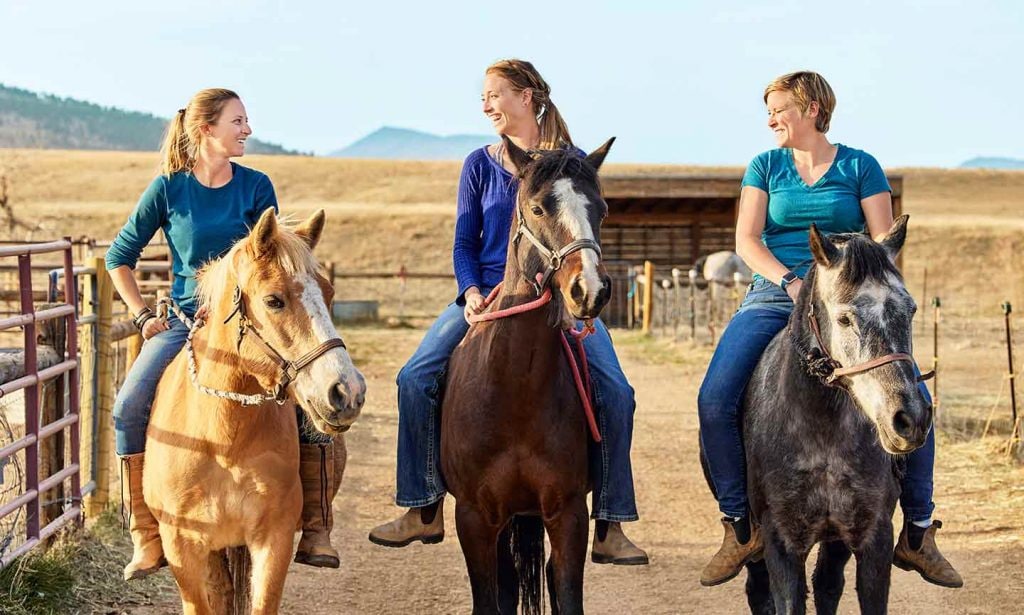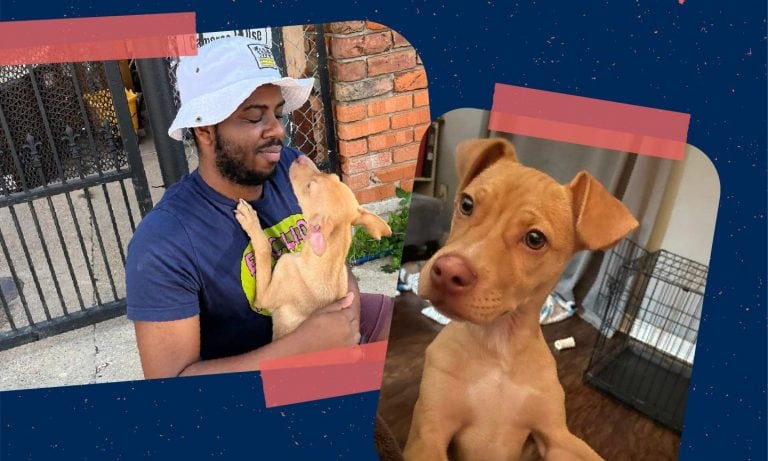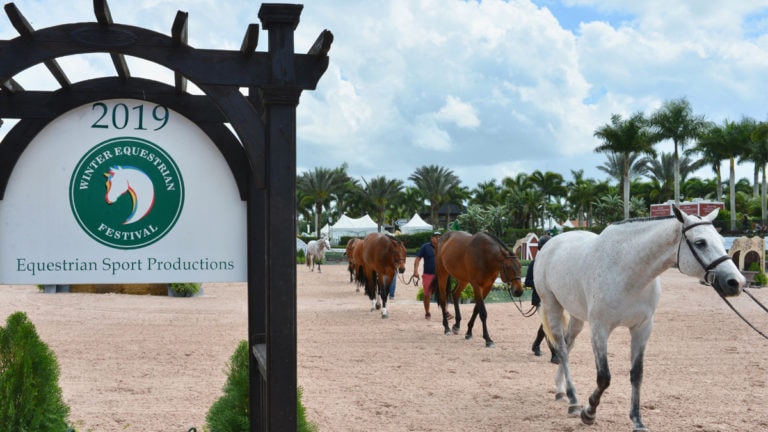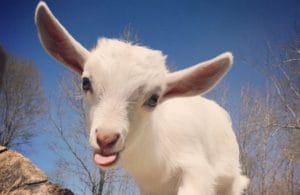Science has shown that when you pair horses and people, wonderful things can happen. (“The Horse Whisperer,” anyone?) At Nature Heals ranch in Boulder, Colorado, horses get to do what they do best: roam, graze, form herds, all the things horses naturally do. That’s also the basic idea behind the place’s equine therapy programs: encouraging people to feel comfortable in their own skin.
“Our goal is to create a community in a space where people can feel like they can just show up and be accepted for who they are and as they are,” says Liese Solotov, who founded Nature Heals in 2016.
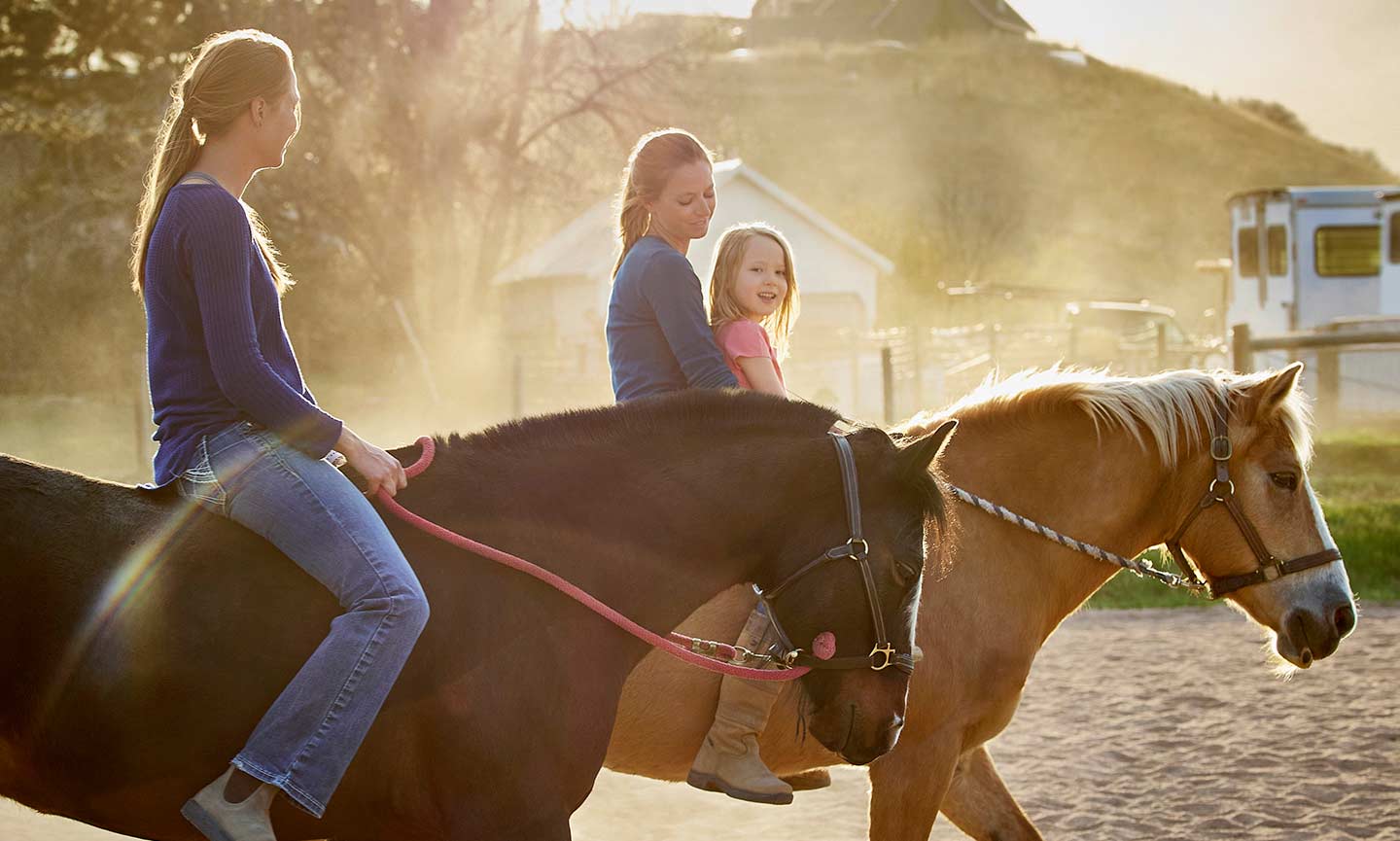
Liese and her sisters Brittany and Ellie Foust run Nature Heals, a nonprofit organization that provides wilderness-based equine therapy, which uses horses in outdoor settings to help people grow and heal. With programs focusing on women, youth, LGBTQ+-identifying individuals and other groups, Nature Heals makes the calming, welcoming benefits of horses accessible to people who need it most—often at no cost.
“We focus on everything from kids with trauma, to queer youth, to adult programming,” Liese says. “The whole point is to bring people back outside into nature, to really focus on their mental health because nature actually does help us heal.”
The organization is home to about 30 horses, who serve as co-therapists or facilitators alongside human professionals at Nature Heals’ roughly 40-acre property. Therapeutic sessions often involve catching (putting on a horse’s halter and leading them where you want them to go) and grooming horses, guiding them through obstacle courses, or simply watching them graze in the pasture. Sometimes there are journaling or writing prompts involved, too, but the foundation of the program is bonding with horses in the great outdoors.
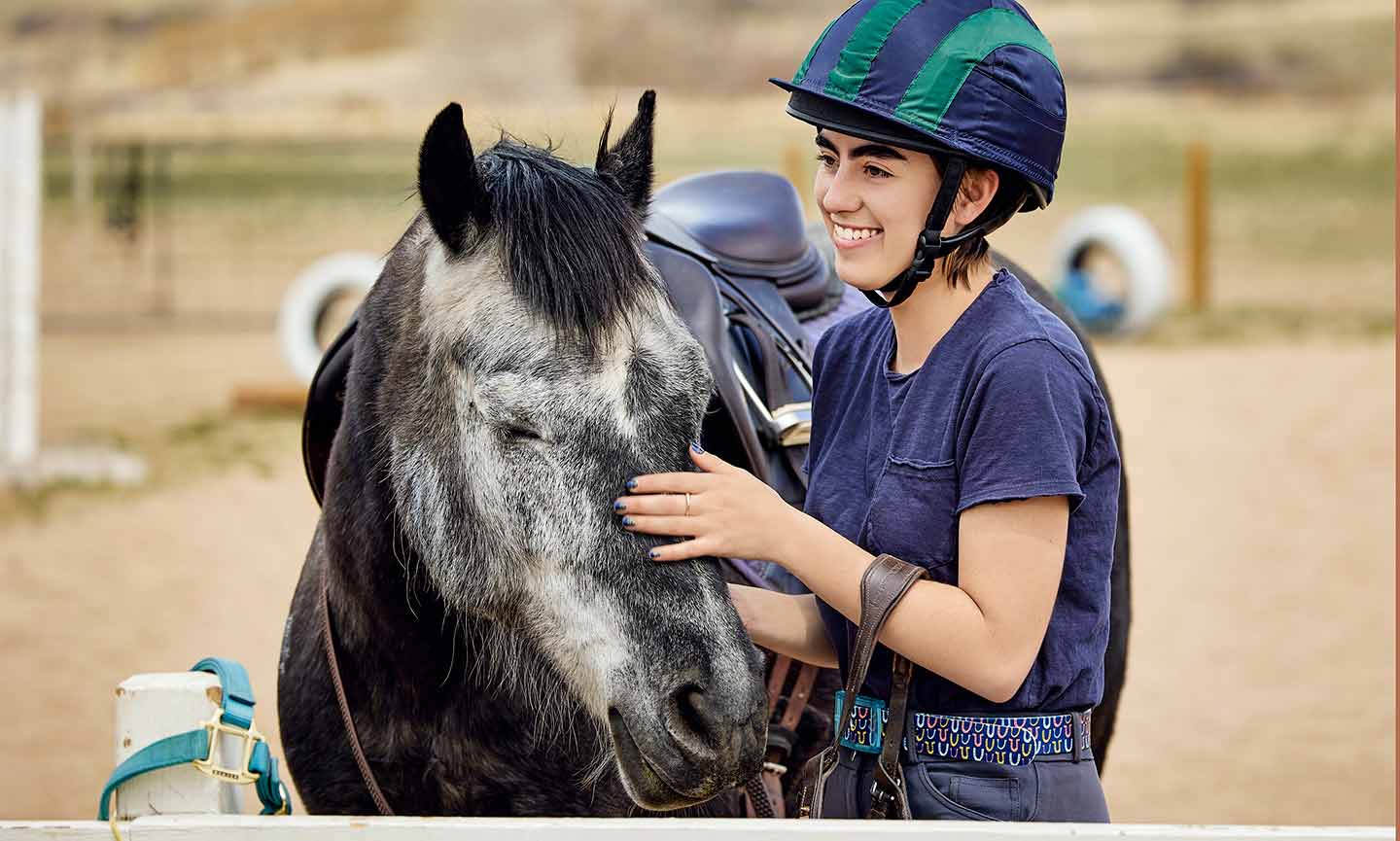
Research has shown that a horse’s presence can be calming and reassuring to people living with trauma, anxiety and depression, similar to the way therapy dogs and service dogs help their humans. In fact, spending mindful, intentional time with horses reduces levels of the stress-related hormone cortisol in young people—a phenomenon Liese has witnessed firsthand.
“Sometimes, we have kids or teens come out and they'll be super wound up and tight and anxious or worried, or even angry sometimes,” Liese says. “You get them grooming and taking care of a horse, and you can just see their muscles slowly relaxing, and then eventually you can see them take a really big sigh or a deep breath.”
And the benefits seem to go both ways, she adds: “Usually when that happens, the horse takes a big deep breath or blows out through their nostrils, too.”
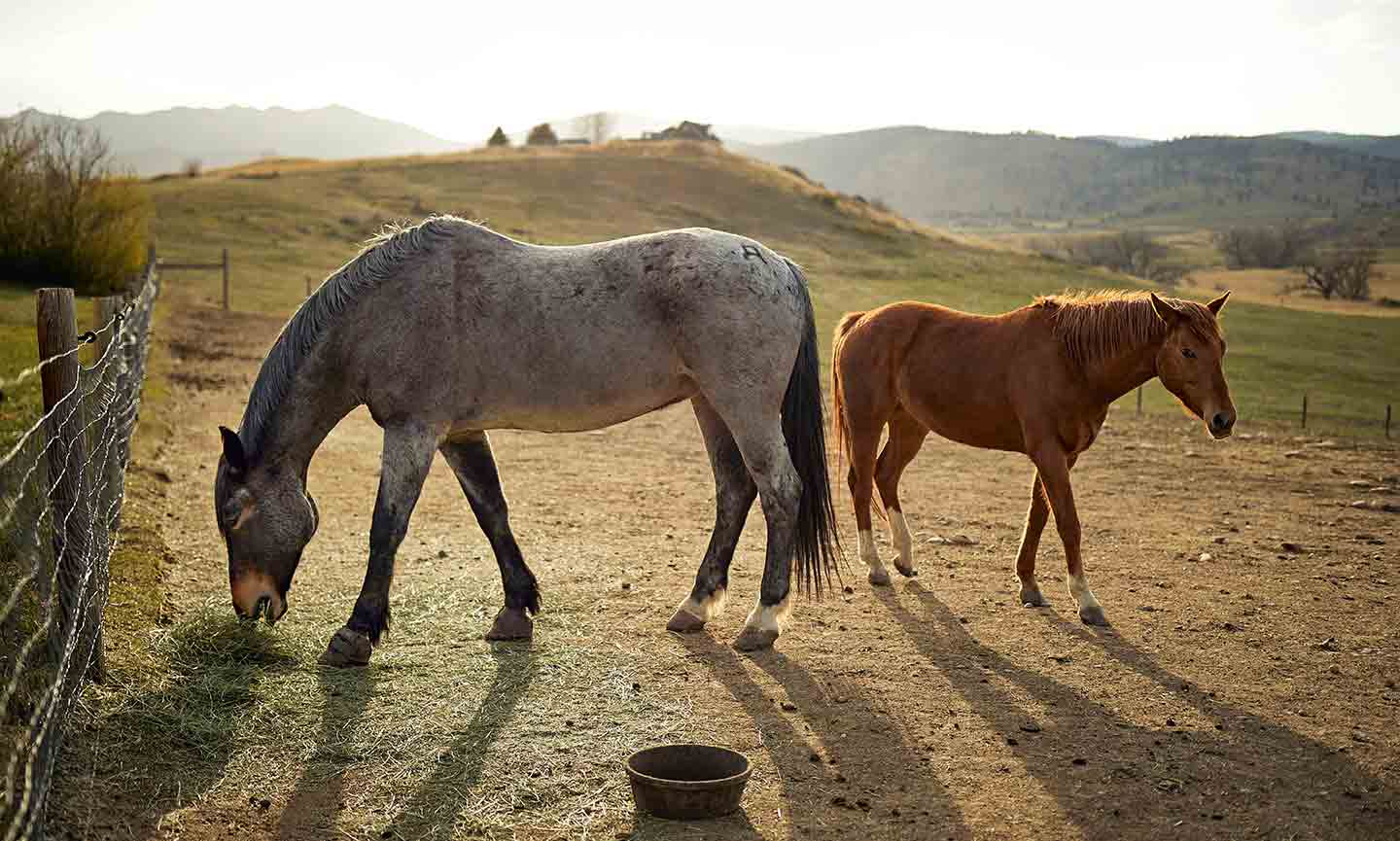
The horses at Nature Heals have often gone through a challenging transition of their own. The nonprofit works with organizations such as the Center for Racehorse Retraining in Cheyenne, Wyoming, to help former racehorses move on from their careers and find new homes. Right now, about 10 of their horses are off-the-track thoroughbreds.
“When they come here, they have to learn different skills and tools so that they can have a successful second career,” says Ellie, the executive director of Nature Heals.
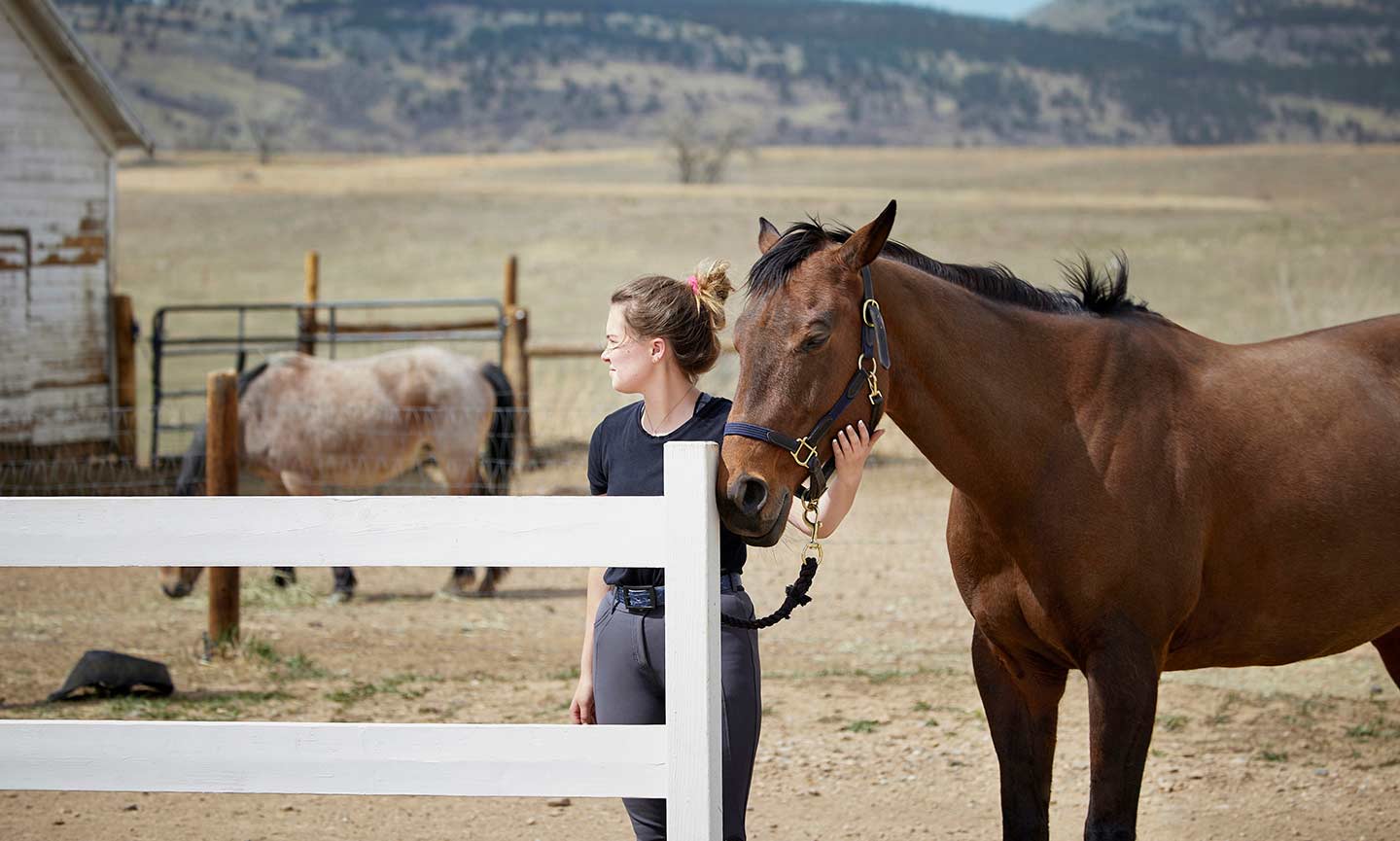
The Foust sisters grew up on a 100-acre farm in Virginia that was home to horses, dogs, cats, rabbits and llamas. Brittany, a therapist at Nature Heals and the oldest of the three siblings, got hooked on horses at an early age and pleaded with her parents for riding lessons until they agreed. Ellie and Liese followed in her footsteps.
But in order to ride, the girls had to learn to take care of the horses—grooming, feeding and training the animals, along with mucking fields (aka cleaning up horse poop), clearing rocks, painting fences and any other chores that were necessary.
The experience had a profound effect on each of the sisters throughout childhood and young adulthood. Ellie thought of the barn as her “safe space,” she says, adding that horses “were able to help me through a lot of really hard times at various points”—most notably when she got sober at age 21.
For Brittany, horses have helped her battle anxiety ever since childhood. “[The barn] is the place that I would go when I was having a bad day or having problems at school or had a lot of problems with being bullied as a kid. It was the only place where it felt like all the pieces fell into place … where I felt like I had friends and connection.”
Liese, who often felt ignored or overlooked as a child, felt that connection, too. “Going out to the barn, even if it was just sitting on a hammock and reading my book with my dog, always made me feel that the animals actually could see me and could be there for me whenever I needed it,” she says.
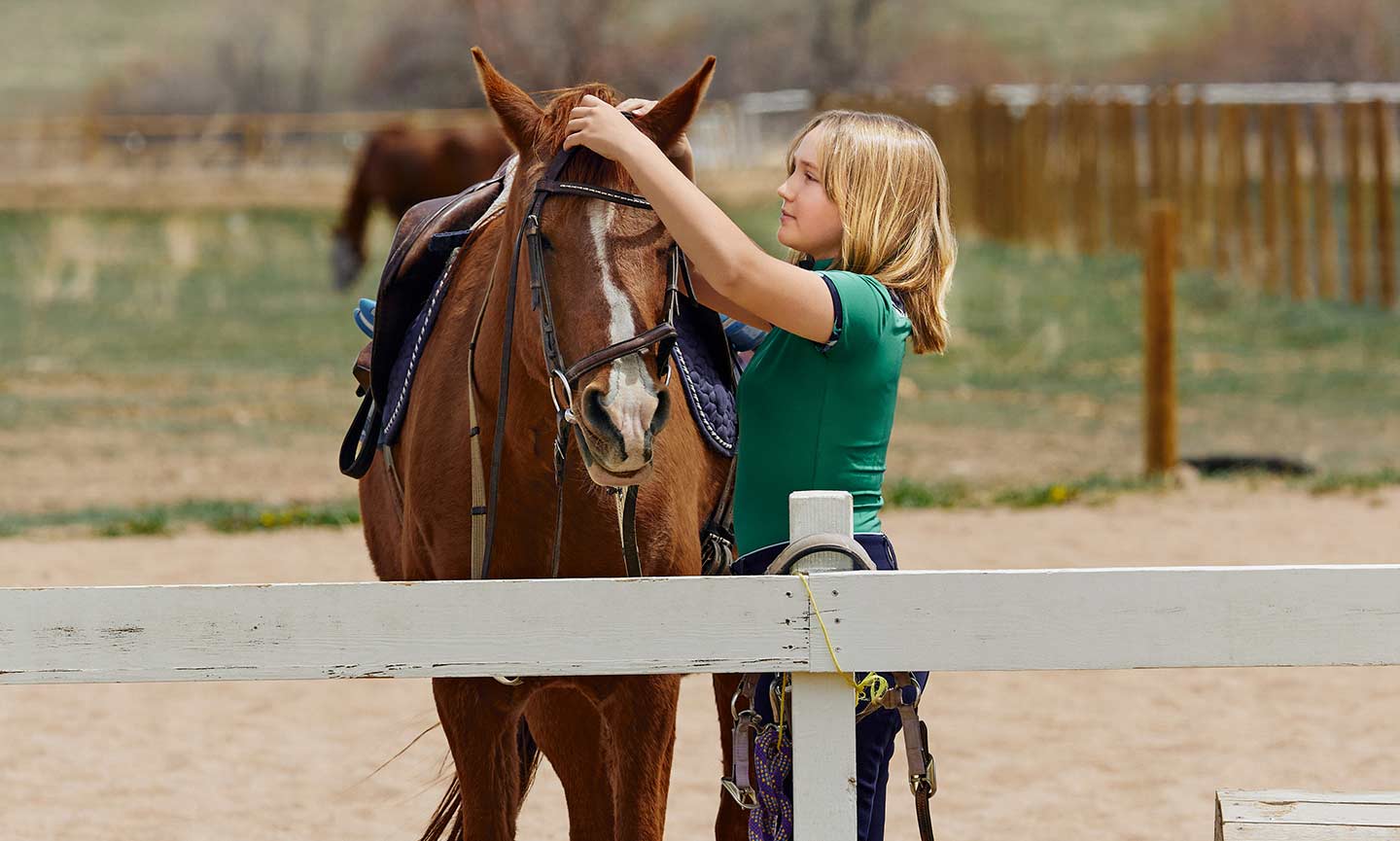
Though equine therapy benefits people of all ages, Nature Heals has been particularly successful with kids and teenagers, Brittany says. For many in that age group, the hands-on sensory experience of hanging out with mares and foals can be more appealing than sitting through a traditional counseling session in an office.
“We find that equine therapy can be a really effective form of therapy for people who maybe don't want to sit inside and have somebody stare at them and ask them about their deepest, darkest secrets,” Brittany says. “They can come here and they can be with the horses and be outside and actually just talk and relate and spend time with a being who has zero judgments for them.”
The organization’s Becoming A Herd program is an equine-based support group for LGBTQ youth. It promotes exploring oneself and self-acceptance in a group context and is intended to show people that they’re not alone, says therapist Sam Field, who identifies as queer.
Becoming a Herd is about “getting people together with horses to build community,” Field says. “It’s offering a momentary pause and a counter to what [may be] happening in the rest of their lives.”
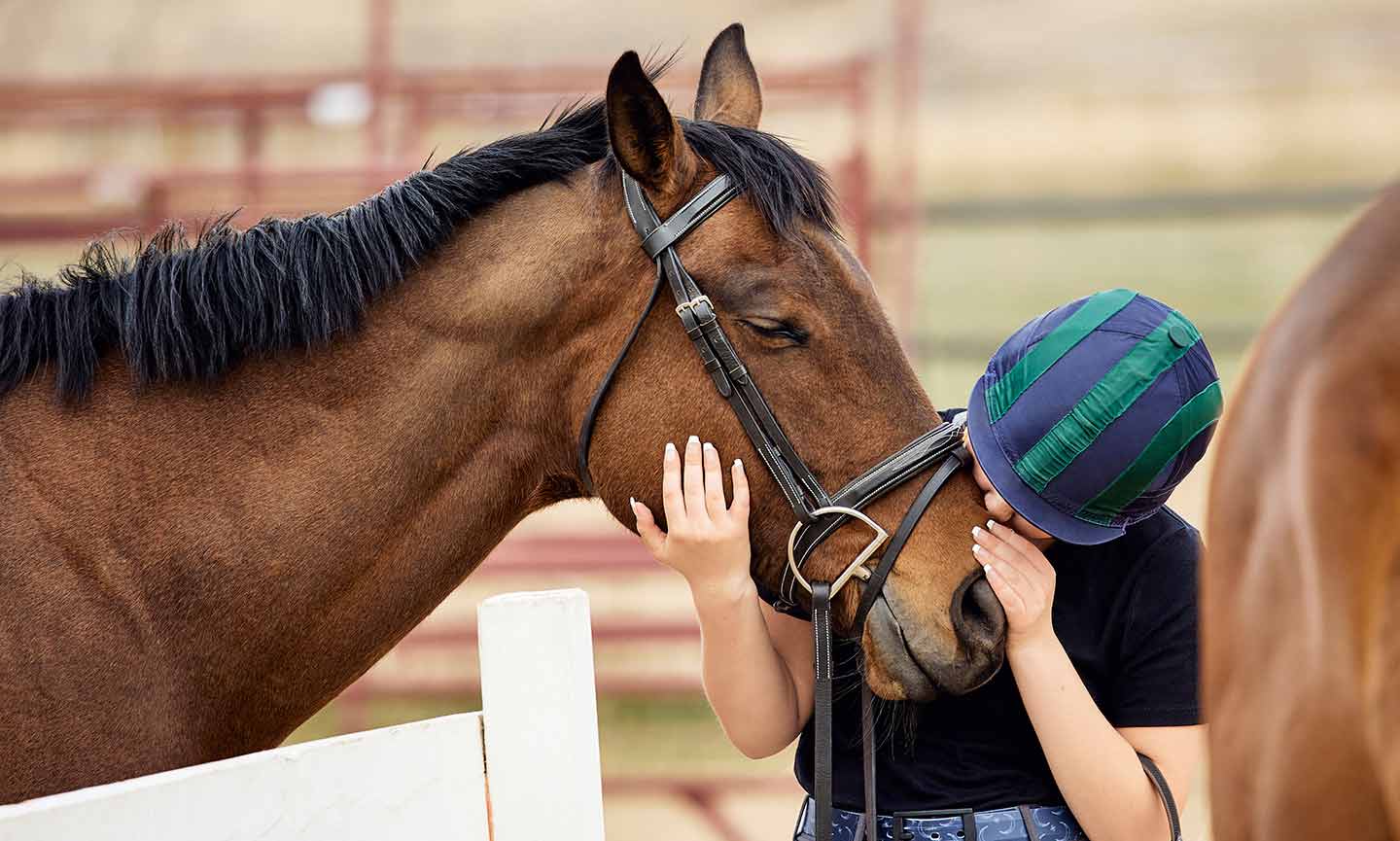
One student who rides regularly at Nature Heals, a high schooler named Audrey, credits the Foust sisters and horse Mulligan — nicknamed “Magoo” — with helping her cope with the stresses of high school, especially during her parents’ divorce. Riding at Nature Heals has taught her confidence, how to better recognize her emotions and to “grow into who I am as a person,” she says.
Like Ellie, Audrey has found a safe space with the horses. “What I mean by a safe space is to have people who will support you,” she says. “I can talk to any of the Foust sisters about whatever I want. We can have normal conversations; they are my family. Everyone here has become my family, too.”
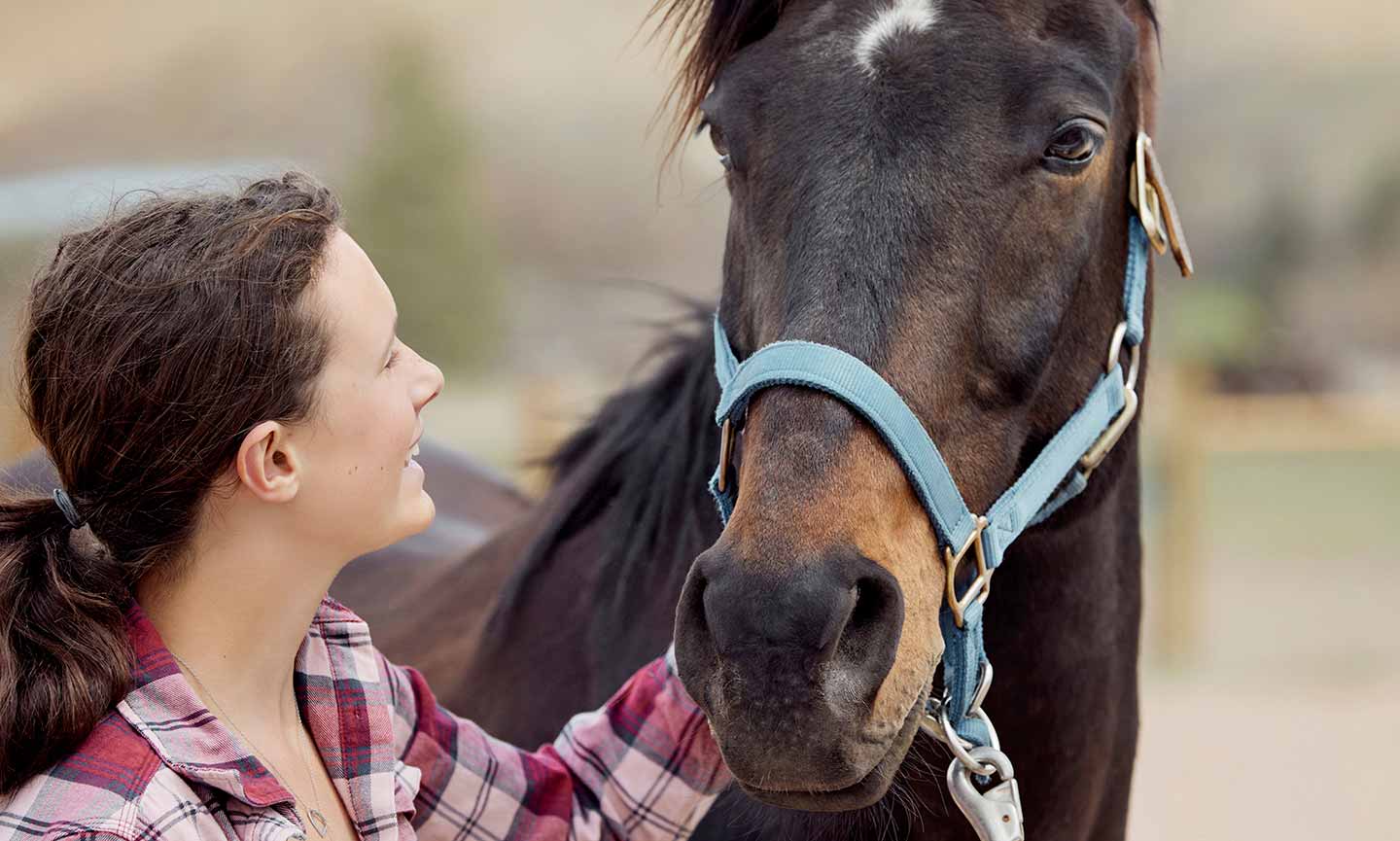
Field counts young people struggling with anxiety and depression, substance use, lack of support from family and homelessness among her clients at Nature Heals—people for whom access to horses is typically financially out of reach. It can cost as much as $1,000 per month to feed and properly care for a horse, Brittany says, not to mention the space required to house them, which has made riding and interacting with horses inaccessible to those without much disposable income.
“[The cost] makes accessing these beautiful, majestic creatures really, really hard” for the average person, Ellie says. So part of Nature Heals’ mission is to make equine therapy available to everyone, operating on a sliding scale, pay-what-you-can model and using grants, fundraising and private donations to cover the rest.
“[We’re] trying to provide that access so that anyone who might want to come out and experience a horse can do so.”
After all, Brittany adds, there’s so much more to horses than just riding and grooming—it’s about coming together as a community where you can feel confident and be accepted as you are.
“Finding a place where you feel like you can belong and fit in is incredibly important for your own self-discovery and your own self-worth.”
Want to Support Nature Heals?
Check out their Wish List, where you can send the pet products they need directly to the group.
Meet more heroes making a difference for pets and their people:
Share:
